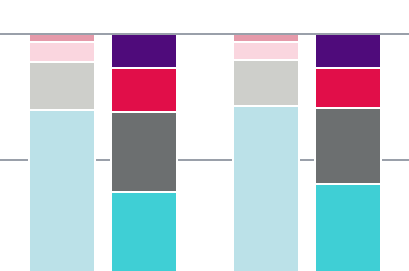Better quality health care needed for children in detention, says report


Children in detention and after they return to the community require better quality health care due to their ongoing, complex health needs, a new report has found.
Researchers from Murdoch Children’s Research Institute (MCRI), the Justice Health Group at Curtin University and the FXB (François-Xavier Bagnoud) Center for Health and Human Rights at Harvard University have collaborated on a report that shines a light on one of the most neglected areas in the protection of children.
The report, “Ensuring the highest attainable standard of health for children deprived of their liberty,” spans children in the justice system and institutions, children living in prisons with their primary caregiver, migration-related detention and those detained in armed conflict and on national security grounds.
MCRI and Curtin University Professor Stuart Kinner said children who experience deprivation of liberty typically have health problems that precede and were further compounded by their experiences in detention.
“With more than 7 million children experiencing deprivation of liberty globally each year, the health of these children is important in reducing health inequalities,” he said.
“Despite this, remarkably little is known about either the health status of children deprived of liberty or the health services available to them in detention and once they are back in the community. The available evidence suggests that health services in places of detention are often inadequate.”
Professor Kinner said children in detention have a high prevalence of complex, co-occurring health needs, including high rates of mental illness, trauma, high risk substance use, chronic disease and neurodevelopmental disability that required coordinated, high-quality health care.
Research from Australia has also reported that children released from criminal justice detention were at increased risk of preventable death.
“Emerging evidence of very poor health outcomes after deprivation of liberty suggests that in addition to ongoing efforts to prevent detention, more should be done to improve the health of these children while detained and after they return to the community,” Professor Kinner said.
“Setting minimum standards for health care in detention will help drive improvements in the quality of care and health outcomes. Developing mechanisms to routinely monitor and report on the health status and health services in places where children are deprived of liberty would also drive reform.”
The aim of the report is to identify gaps in the system and assist the United Nations Task Force (UNTF) in its efforts to support the implementation of the UN Convention on the Rights of the Child (UNCRC) and ensure that all children, including those deprived of their liberty in all settings, achieve the highest attainable standard of health.
More information:
Report: Ensuring the highest attainable standard of health for children deprived of their liberty
Murdoch Children’s Research Institute
Citation:
Better quality health care needed for children in detention, says report (2024, February 14)
retrieved 18 February 2024
from
This document is subject to copyright. Apart from any fair dealing for the purpose of private study or research, no
part may be reproduced without the written permission. The content is provided for information purposes only.
link





